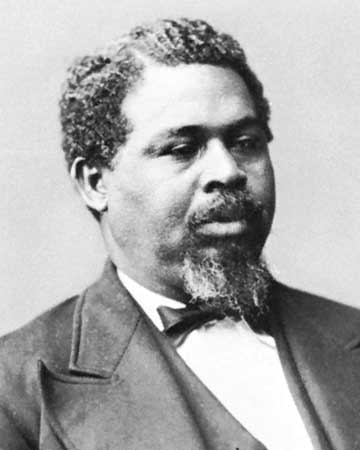The Daring, Varied Life of Escaped Slave Robert Smalls Part 2: Business, Politics, and SuccessSmalls became a celebrity when his story became known in the North. Congress awarded him a $1,500 prize as compensation for the "rescued" ship, the Planter; and he toured the North, speaking of his escape to enthusiastic crowds while also recruiting African-Americans to serve in the Union Army. (By one count, Smalls's influence extended to recruiting 5,000 African-Americans fo fight for the North.) Smalls's escape was among the factors that had encouraged President Abraham Lincoln and Secretary of War Edwin Stanton to approve the enlistment of African-Americans in the Union military. Smalls went back out on the water, piloting the Crusader and, later, the USS Keokuk, an ironclad, on 17 missions in and around Charleston. He also served as acting captain of the Planter, which was also back in the water. His knowledge of the area proved invaluable to the Union naval effort. He also served as naval support for General William T. Sherman's March to the Sea. When the war ended, Smalls had enough money to buy the Beaufort house he grew up in; Union forces had seized the house as penalty for unpaid taxes. Smalls lived in that house for the rest of his life. His mother lived out her life there, as did Jane McKee, the widow of Smalls's former master, Henry McKee.
Smalls got into politics soon after the war ended, and he served as a delegate to state and national conventions. He served in both houses of the South Carolina legislature and also served two terms in the U.S. House of Representatives. He later worked for the U.S. Customs Department and also served in his state's militia. Robert Small died of diabetes and malaria on Feb. 23, 1915, in his home. His legacy succeeded him. He was honored in the name of a Civil-War era fort in Pittsburgh, a World War II-era training camp, a 2004 U.S. Army support ship, an exhibit at the U.S. Army Transportation Museum, and a five-mile section of a South Carolina state highway leading into Beaufort. On a monument in the churchyard in which Smalls is buried is a statement that he made to the South Carolina legislature, in 1895: "My race needs no special defense, for the past history of them in this country proves them to be the equal of any people anywhere. All they need is an equal chance in the battle of life." |
|
Social Studies for Kids
copyright 2002–2025
David White

 Smalls and Philadelphia businessman Richard Gleaves opened a store in Beaufort for freedmen, the recently emancipated slaves who had little to their names. Smalls also helped form an 18-mile horse-drawn railway to transport passengers and cargo between Charleston's wharfs and the city interior. And in 1872, Smalls started a newspaper, the Beaufort Southern Standard.
Smalls and Philadelphia businessman Richard Gleaves opened a store in Beaufort for freedmen, the recently emancipated slaves who had little to their names. Smalls also helped form an 18-mile horse-drawn railway to transport passengers and cargo between Charleston's wharfs and the city interior. And in 1872, Smalls started a newspaper, the Beaufort Southern Standard.
